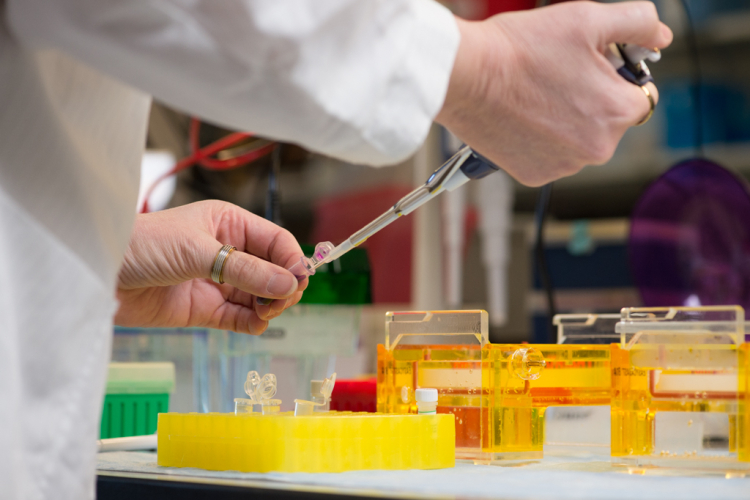Four Department of Medicine faculty awarded Wisconsin Partnership Program Research Grants to address COVID-19 challenges

Four University of Wisconsin Department of Medicine faculty received research grants from the Wisconsin Partnership Program's COVID-19 Response Grant Program, established to help the university and community organizations across Wisconsin address the immediate health challenges of COVID-19.
The research grants, up to $150,000, support scientific, medical and public health approaches to lessening the impact of COVID-19 through improved testing, treatments and vaccine development, as well as projects that aim to protect the public and healthcare workforce from the virus.
Funded projects led by Department of Medicine faculty are:
Novel COVID-19 monoclonal antibodies for patient diagnostics, therapy and research
Awarded to David Andes, MD, professor and division head, Infectious Disease, to address the immediate need for testing and therapeutic strategies to treat COVID-19.
Leveraging social networks and trusted community influencers to disseminate an accurate and up-to-date understanding of COVID-19 in Black, Latinx and American Indian Communities
Awarded to Carey Gleason, PhD, associate professor, Geriatrics and Gerontology, to establish accurate communications about COVID-19 in underserved minority communities, including African American and Latinx communities and the Oneida Nation of Wisconsin by leveraging long-standing collaborative relationships with leaders in these communities.
Creating infrastructure to study, test for and track the COVID-19 virus in Wisconsin
Awarded to Miriam Shelef, MD, PhD, assistant professor, Rheumatology, to establish a COVID-19 convalescent tissue biorepository for blood and nasal samples from individuals who have recovered from COVID-19. This will be used in research and to track the prevalence of the coronavirus in southcentral Wisconsin by collecting discarded plasma from blood donated by patients with no symptoms of COVID-19.
Role of naso-oropharyngeal antiseptic decolonization to reduce COVID-19 viral shedding and disease transmission: SHIELD Study
Awarded to Daniel Shirley, MD, MS, assistant professor (CHS), Infectious Disease, to assess the feasibility and efficacy of self-administered nasal and oropharyngeal disinfectants in reducing the development of COVID-19 illness in healthcare workers.
The COVID-19 Response Grant Program awarded a total of 21 grants: 11 community-led initiatives and 10 research grants.
Resource:
- "Wisconsin Partnership Program Announces $2.2 Million in Grants in Response to COVID-19." University of Wisconsin School of Medicine and Public Health news article. Published May 1, 2020. Accessed May 4, 2020.